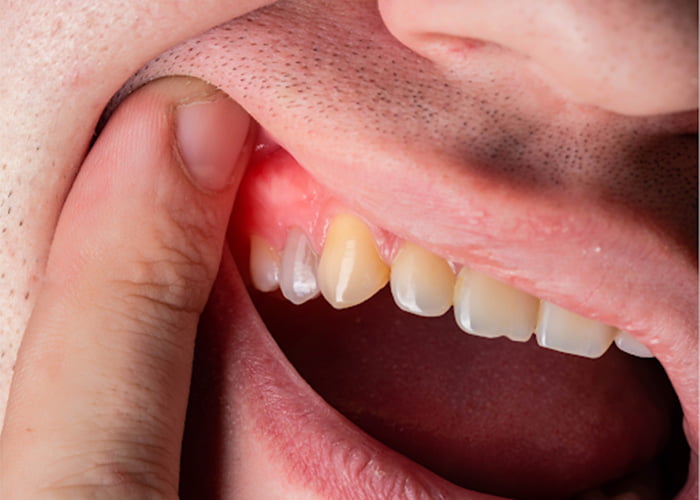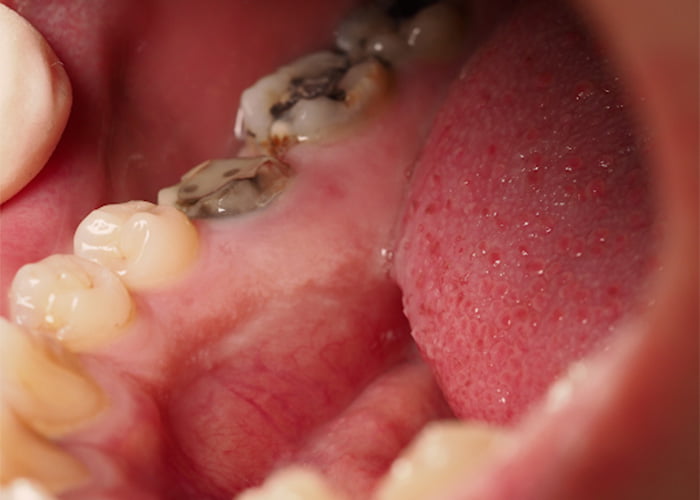Imagine a world where cavities didn’t exist and dental decay was a thing of the past. Explore what the world would be like if can cavities go away didn’t exist and how it would impact oral health.
Cavities are a common dental problem that affects people of all ages. While prevention is key, many people wonder if it’s possible to reverse dental decay once it has started. The good news is that in some cases, cavities can go away with proper care and treatment. In this article, we’ll explore the possibility of reversing dental decay and provide tips for maintaining good oral health to prevent cavities from forming in the first place.
What Is Tooth Decay? How Does It Cause Cavities?
Did you know that tooth decay is one of the most common dental problems in the world? It is a condition that affects millions of people each year and can cause many unpleasant problems in daily life, such as toothache, sensitivity, and even tooth loss.
Tooth decay occurs when bacteria in the mouth produce acids, which attack tooth enamel and cause enamel deterioration. When you have tooth decay, you will start to feel a toothache and be sensitive to foods and drinks, especially sugary drinks.
The causes of tooth decay are often related to poor oral care, a diet high in sugar and starch, and poor living habits. However, you can completely prevent tooth decay by making some simple changes to your eating and oral care habits.
Can Cavities Go Away On Their Own
The answer is no, cavities cannot go away on their own. Once a tooth has decay, it requires treatment from a dentist to remove the decayed portion of the tooth and fill the cavity with a filling material. If left untreated, the cavity can worsen and cause pain, infection, and even tooth loss.
Who is at risk of developing cavities?
Anyone who consumes sugary and acidic foods and drinks is at risk of developing cavities. Poor oral hygiene, dry mouth, and certain medical conditions can also increase the risk of cavities. Children and older adults are particularly vulnerable to cavities. Regular dental check-ups and good oral hygiene practices can help prevent cavities.
What Happens If A Cavity Is Left Untreated?
If a cavity is left untreated, it can worsen and cause pain, infection, and even tooth loss. The decay can spread to the pulp of the tooth, causing an abscess or infection. This can lead to swelling, pain, and even damage to the surrounding teeth and gums. In severe cases, the tooth may need to be extracted. It is important to have cavities treated promptly by a dentist to prevent further complications.Five what happens if a cavity is not treated: infection,nerve damage,jaw damage,an abscess and death.
See more: What can’t you eat with braces
Infection
As tooth decay progresses to the inside of the tooth, it can damage nerves and cause an infection. If the duplicate element is ignored, it can spread to other parts of the body and cause more serious problems.
Nerve Damage
Tooth decay can damage the nerves in the tooth and cause pain, sensitivity, and discomfort. If left untreated, this damage can lead to gradual loss of the nerve and requires surgery for treatment.
Jaw Damage
Damage to the jawbone is one of the serious consequences of untreated tooth decay. When bacteria from tooth decay spreads to the jawbone, it can cause significant damage and lead to tooth loss. Damage to the jawbone can also cause pain and discomfort when chewing, affecting your quality of life. To avoid damage to the jawbone and other complications of tooth decay, do not neglect timely treatment and maintain daily oral hygiene. If you suspect you have tooth decay or have any symptoms related to your teeth, see your doctor right away for a prompt diagnosis and treatment.

An Abscess
A pocket of pus in a tooth or gum, called an abscess, is a serious complication of untreated tooth decay. An abscess can cause severe pain and swelling, and if not treated promptly, it can spread to other parts of the body, causing more serious health problems. If you suspect you have an abscess, seek medical attention right away for prompt diagnosis and treatment.

Death
In the rarest and most severe cases, tooth decay can cause an infection to spread to the body’s circulatory system, leading to some serious problems and possibly even death. This is especially true for people with weakened immune systems, such as children, the elderly, or those with conditions related to the immune system. Therefore, early caries treatment is very important to avoid the most serious consequences that can occur.
Read more: Teeth bonding before and after
How can you prevent a cavity from forming in the first place?
To prevent cavities from forming in the first place, there are several measures that can be taken, including:
- Brushing your teeth at least twice a day with fluoride toothpaste.
- Use dental floss to remove food and bacteria between teeth.
- Avoid eating too many sweets, especially carbonated or sugary drinks, as these can lead to the formation of tooth decay.
- Use antibacterial lozenges to help get rid of bacteria in your mouth.
- Regularly visiting the dentist for check-ups and cleanings to detect and treat dental problems early, preventing them from progressing into serious cavities.
Good Oral Hygiene Reduces Your Risk of Cavities
Proper care of baby teeth is important to minimize the risk of tooth decay. Brushing twice a day with a fluoride toothpaste, daily dental use only, and a limited diet and sugary and acidic drinks can help prevent the build-up of plaque and bacteria on teeth. . Plaque is a defined layer of bacteria on teeth that can lead to tooth decay and tooth damage. By implementing good Cavity care habits, you can keep your healthy Teeth and gums healthy and reduce your risk of tooth decay.
Can cavities cause complications?
Yes, tooth decay can cause complications if not treated promptly. If a cavity is left untreated, it can continue to grow and eventually reach the inside of the tooth, where nerves and blood vessels are located. This can lead to toothache and, if left untreated, can lead to a tooth abscess, which is a pocket of pus that forms in the tooth or surrounding tissue. Tooth abscesses can cause pain, swelling and even spread to other parts of the body if not treated promptly. In addition, untreated tooth decay can lead to tooth loss and affect the alignment of your teeth.
In conclusion
While having braces can be challenging, it is important to avoid certain foods that can damage the brackets and wires, causing discomfort or even prolonging treatment time. Sticky and hard foods, as well as foods that require biting into with front teeth, should be avoided. Instead, opt for softer, easier-to-chew options and cut larger items into smaller pieces before consuming. By following these guidelines, patients can help ensure their braces treatment progresses smoothly and successfully. Remember, the temporary inconvenience of avoiding certain foods is well worth the long-term benefits of achieving a healthy, beautiful smile.
Dentist in Marysville is a reputable dental clinic located in Marysville, offering a wide range of dental services to patients of all ages. As a trusted Dentist in Marysville, they are committed to providing exceptional and personalized care to every patient who walks through their doors. Their team of experienced dentists and staff is dedicated to ensuring that each patient receives the highest standard of care possible. Whether you are in need of a routine check-up, dental cleaning, or more complex procedures such as root canals or dental implants, Dentist For Life is the go-to place for all your dental needs. With a focus on patient comfort and satisfaction, they strive to make every visit a positive experience. Book an appointment today and experience the difference that a caring and professional Dentist in Marysville can make in your oral health.



